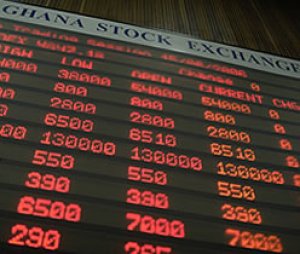Mega African Capital Limited has recorded a 747 percent increase in profit before tax from GH?0.933 million in 2012 to GH?7.90 million in 2013.
The company’s total revenue increased by 324 percent from GH?2.39 million in 2012 to GH?10.14 million in 2013, while net assets increased by 61 percent to GH?20.83 million.
The top gainers in the portfolio were Cal Bank (155%), MLC (153.32 %), Benso Oil (129.29%), CRDB (86.67%) and Societe Generale Ghana (56.25%), but there were modest gains on Standard Chartered Bank (29.91%) and Nico Holdings (24.48%).
According to the chairman of the board of directors, Kofi Ampim, by the end of 2013, 52 percent of the total assets were held in equities, 22 percent in investment property and 20 percent in fixed income securities. The stock market in sub-Saharan Africa generally performed well in 2013. The Ghanaian stock market made gains of 105 percent. The Malian market registered gains of 142 percent, with the Tanzania market recording gains of 58 percent, he said.
“The Tanzanian Shilling and Malawian Kwacha depreciated by 0.2 percent and 22 percent respectively against the dollar in 2013. The high returns on these stock markets translated into high capital gains on our portfolio of investments,” he added.
He said by December 2013, Ghana’s inflation was 13.5 percent above the targeted rate of 9 percent. He said the 91-day Treasury bill decreased from 23.12 percent in December 2012 to 19.22 percent in December 2013.The one-year and two-year note averaged 21.2 percent and 21.4 percent respectively in 2013.
He added that Ghana’s increasing imports and decreasing exports caused the cedi to depreciate 19.5 percent against the US dollar, 17.5 percent against the pound sterling and 20.2 percent against the euro.
The chairman said the company’s objective is to achieve medium to long-term capital growth through investing in selected listed and unlisted private companies mainly in Africa.
Outlook for 2014 Mr. Ampim said the developments in commodity prices on the international markets continue to pose significant risks to the external outlook with direct implications for the domestic economy.
He said the challenges faced by the Ghanaian economy in 2013 are expected to worsen in 2014, adding that the high levels of fiscal deficits and high utility prices are expected to persist, leading to higher inflation levels.
Business News of Thursday, 19 June 2014
Source: B&FT

















